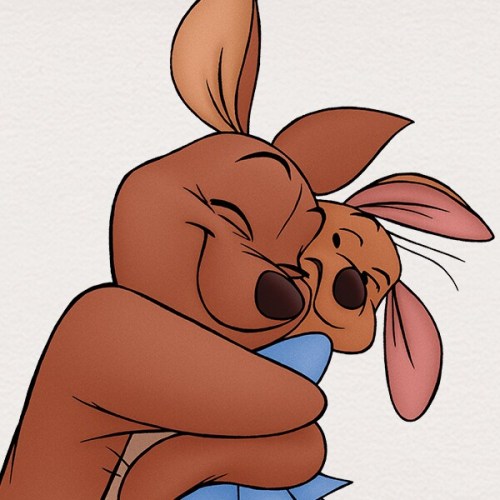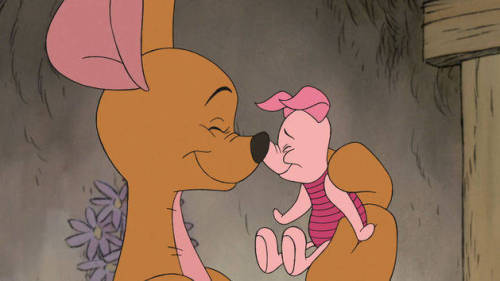Where your favorite blogs come alive
Rabbit Winnie The Pooh - Blog Posts
I know the idea of Winnie the Pooh characters representing mental illness is overdone to death, but I can't help but be intrigued by it. What if the reason everyone display these symptoms is because they were specifically created to hold onto them?
What if Christopher Robin has Dissociative Identity Disorder or Otherwise Specified Dissociative Disorder?
What if, to cope with severe parental neglect, his brain created a world of people who would love him unconditionally?
Disclaimer: This is for a fictional interpretation of Christopher Robin, not the real person. This is based on the Disney version of the stories. Also, this idea is for entertainment purposes only, so artistic liberties are made.
--
We start with Roo and Kanga, who are the classic mother and son archetype.
Roo represents the person Christopher wants to be in real life. He wants to be curious, bold, and michevious, but he also wants to be nurtured.
Essentially, Roo's a child alter meant to hold onto Christopher's innocence. Kanga exists to be Roo's, as well as everyone else's, caretaker and soother. She represents the mother figure Christopher wishes he had in the outer world.


Next, Tigger holds onto Christopher's ADHD/autism symptoms, as well as his desire to stim openly.
In the outer world, Christopher is severely stifled and is not allowed to express these traits to people. Therefore, they are passed on to Tigger to hold onto. Tigger is very rambunctious and carefree.
However, his desire to find other Tiggers and his catchphrase of "being the only one" represents the loneliness Christopher feels because of his neurodiversity. He wants to be proud of being unique, but really, he feels alone.


Furthermore, characters like Piglet, Rabbit, and Pooh are all symptoms holders as well.
Piglet holds onto anixety. Additionally, he holds onto Christopher's feelings of being overlooked and underappreciated. Meanwhile, Rabbit holds onto perfectionism and an obsession for order.
Due to being raised in a strict environment, Christopher feels immense pressure to live up to the high expectations of society. Thus, Rabbit and Piglet are high-strung because that's how Christopher feels in his day to day life. Rabbit also represents the limitations society puts onto Christopher, which is why he is so judgemental.


Similarly, Eeyore holds onto Christopher's traits depression and isolation. He feels left out even among the other alters because he is inherently created to be an outcast.
Eeyore's desire for a tail stems from a longing to be "normal." Just as Eeyore thinks a tail will make him happier and more accepted by his peers, Christopher thinks that "masking" will do the same. In reality, what they want will always be out of reach. Perhaps temporary, but never permanent.
Owl is a factive based on Christopher's teachers, presenting as a mentor to the other alters. Yet, his lessons are confusing and nonsensical to the audience because Christopher's own struggle with school.
Owl also holds onto Christopher's dyslexia and learning disabilities, concealed by a false sense of ego and bravado. The same type of attitude that Christopher's teachers presents on a daily basis.


Lastly, Winnie also holds onto Christopher's autistic symptoms. While everyone displays these traits, Tigger and Winnie hold onto the "least socially acceptable" qualities. Hence why Rabbit often has conflict with them.
Winnie and Tigger lack social awareness, are blunt, and can accidentally hurt the others due to misunderstanding their body language and facial language.
On a different note, Winnie is obsessed with honey, which represents Christopher's desire to overeat in real life. This is a coping mechanism for his isolation, and later on, the ongoing stress of boarding school.


Overall, the Winnie the Pooh cast are alters created to hold onto traits that Christopher can't express in the outer world. The Hundred Acre Woods acts as an inner world for the alters and Christopher to escape the daily stress of life.
Unfortunately for Christopher, the demands of boarding school leave him unable to visit most of the time. However, he can still watch their misadventures from the outside.
Additionally, the various stories of Winnie the Pooh represent changes in his life, as well as actual events in the outer world.
Tigger's movie represents Christopher wanting a family that is neurodivergent but finding solace in his alters. On the other hand, Piglet's movie showcases Christopher feeling like an outcast that is taken for granted and once again finding solace in his alters. And so on, so forth.
In the end, Christopher is forced to suppress his alters, so they are permanently trapped in the Hundred Acre Woods, always yearning for their host. They have no idea what lies beyond their home because they have never known anything else. And they never will.